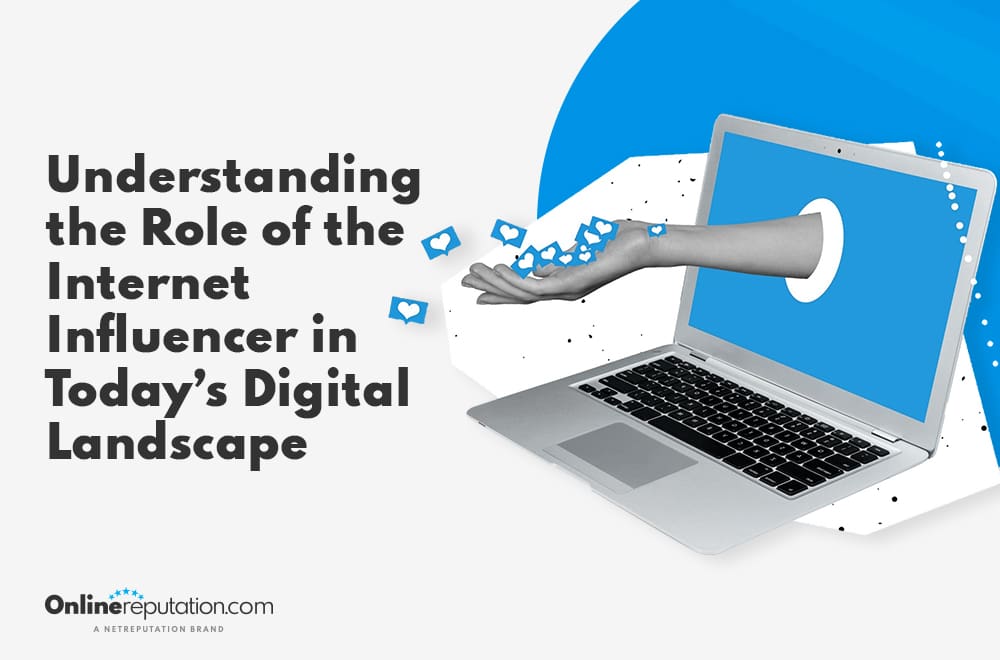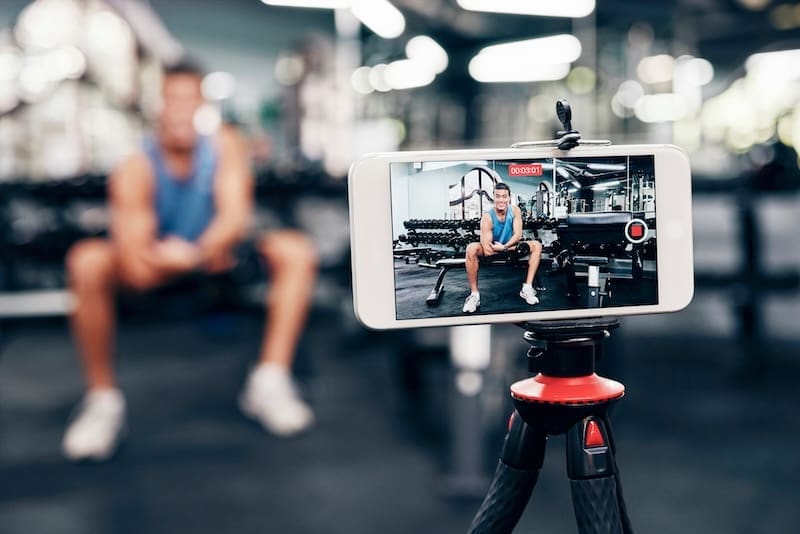
With substantial social media followings, an internet influencer can significantly influence consumer behavior and trends. They come in various categories, including celebrities, experts, content creators, and micro-influencers, and their authenticity is a crucial factor in gaining trust.
Collaborating with influencers can benefit brands through increased awareness, reach, and engagement, but it also comes with risks, such as a lack of control and potential negative publicity.
Regulations and ethics are increasingly important in the influencer marketing industry, emphasizing transparency and disclosure to maintain authenticity and comply with legal requirements.
Measuring the success of influencer campaigns through metrics like reach, engagement, conversions, and sentiment analysis is vital for optimization.
The future of influencers and brand partnerships is promising, with technological advancements like live streaming, virtual reality, and AI offering new opportunities for brands, mega-influencers, and creators.
It’s possible to create a robust, positive online reputation even if you’re starting from zero. Call us at 844-230-3803 for more information.
Who Are Internet and Social Media Influencers?

Influencers have large social media followings and influence their audience’s opinions and buying decisions. They specialize in fashion, beauty, fitness, travel, food and more across various content-creation categories, such as bloggers and vloggers. Some creators even solely work on social media platforms.
Social media influencers connect deeply with their followers, creating engaged communities. Due to their broad social media reach, they have a significant impact on consumer behavior by endorsing products and services. This makes them particularly valuable to the brands that partner with social media influencers.
Authenticity is key to their success, as they build trust by being genuine and transparent. Striking a balance between authenticity and sponsored content is essential to maintain credibility.
We work with clients to help them build their online reputation and take control of their social media presence. Give us a call at 844-230-3803 to learn more.
Different Types of Social Media Influencers

Social media influencers include bloggers, vloggers, social media celebrities, industry experts, key opinion leaders, and micro-influencers. They have substantial online followings and the power to influence their audience.
Bloggers use written content to share expertise, vloggers create videos, and social media influencers and celebrities have a wide reach, specifically on social media platforms. Industry experts provide valuable insights to a broad audience, while micro-influencers have engaged smaller followings.
Each type of social media influencer has unique benefits, and choosing the right one depends on your brand values, target audience, and campaign goals.
The Impact of Social Media Influencers

Online influencers impact their audiences in niches in various ways. Let’s talk about them.
Social Media Reach and Engagement
Social media reach and engagement are crucial to an influencer’s impact in today’s digital landscape.
Reach: Influencers can reach many people through popular social media platforms. Whether it’s through Instagram, YouTube, or TikTok, their content can be seen by millions of social media users. This extensive reach allows influencers to connect with a wide audience and share their opinions, experiences, and recommendations.
Engagement: It’s not just about the number of followers an influencer has, but also the level of engagement they receive. Influencers who generate a high number of likes, comments, and shares on their posts often indicate an audience that actively interacts with their content. This engagement demonstrates how influential an influencer is in shaping consumer behavior and generating interest in the brands or products they promote.
Shaping Consumer Behavior in a Particular Niche
From macro-influencers to the nano-influencer, these content creators wield a substantial influence over consumer behavior through various means. They can sway purchase decisions, making their recommendations and endorsements impactful. These influencers also act as trendsetters, shaping product preferences and fostering increased demand. Moreover, consistently promoting specific brands or products can instill brand loyalty among their followers.
Additionally, they shape opinions on various topics, raise awareness about social issues, and influence values and beliefs. Lastly, they inspire behavior changes, encouraging their audience to adopt healthier lifestyles, mindfulness, or sustainable practices.
Influencers with established credibility play a pivotal role in shaping consumer behavior in these multifaceted ways.
Driving Trends and Creating Viral Content
Influencers are crucial in driving trends and capturing audience attention by creating viral content. They leverage their creative skills to spark conversations, generate buzz, and develop content that resonates with their followers.
This high-quality content, ranging from entertaining videos to thought-provoking challenges, often goes viral, amplifying the influencers’ reach and influence. This ability also opens doors for collaborations with brands seeking to align with trending content creators, whether that’s a macro-influencer or a nano-influencer.
Influencers continuously tap into the latest trends to maintain relevance in the dynamic digital landscape, ultimately shaping popular culture and consumer behavior.
The Power of Authenticity in Influencer Marketing

The best social media strategy an influencer can adopt is one that highlights their authenticity. Otherwise, they could quickly lose their following and influencer.
Building Trust and Credibility Through Digital Marketing
Internet influencers must prioritize building trust and credibility to maintain a loyal and engaged audience. This involves consistently delivering valuable content that aligns with their audience’s interests while ensuring accuracy and reliability.
Transparency is key, as influencers should openly disclose partnerships and sponsored content to avoid misleading their followers.
Engagement with their audience, including responding to comments and addressing concerns, fosters trust and community. Positive reviews and testimonials further contribute to credibility.
Building trust and credibility requires ongoing efforts centered on consistency, authenticity, transparency, and active engagement, allowing social influencers to establish themselves as trusted sources in the dynamic digital landscape.
Balancing Authenticity and Sponsored Content
Maintaining authenticity while promoting sponsored content is essential for internet influencers. They achieve this balance by choosing brands that align with their values and their audience’s interests. Transparency is crucial, and influencers should disclose when content is sponsored to build trust.
Today, online reputation management is more important than ever before. Get started by speaking with an expert at 844-230-3803 today.
The Benefits and Challenges of Collaborating with Social Media Influencers

While a brand’s digital marketing strategy can be greatly helped by partnering with a nano-influencer, micro-influencer or macro-influencer, there are drawbacks to consider. Let’s discuss the pros and cons of working with influencers.
Advantages of Partnering with Influencers
Partnering with influencers helps brands expand their reach and gain visibility to a trusted and engaged audience. Influencer endorsements carry authenticity, enhancing brand credibility.
The niche audiences of influencers align with specific brand targets, improving targeting and conversion rates. Influencers excel at creating engaging content, offering brands creative ideas and storytelling prowess.
Moreover, brands can glean valuable insights from an influencer’s personal branding and audience engagement strategies, improving their social media marketing practices.
Potential Risks and Pitfalls of Working With Social Media Influencers
Collaborating with micro- and mega-influencers carries potential risks, including brand misalignment, inconsistent content quality, lack of authenticity, fraudulent practices, and negative feedback. To mitigate these risks, thorough research and vetting of influencers are crucial to ensure their values align with your brand’s image and target audience.
Reviewing their past work and engagement rates helps avoid inconsistent or low-quality content across different social media platforms. Authenticity is key, and influencers should genuinely engage with their audience and endorse their products.
Beware of fraudulent practices like buying fake followers and engagement, which can be detected by analyzing engagement rates and audience demographics.
Additionally, researching an influencer’s history and reputation is essential to avoid potential risks related to negative feedback.
Regulations and Ethics

Transparency and disclosure are key elements of influencer advertising that help establish consumer trust and credibility. Here are essential considerations:
Clear Disclosure: Influencers must explicitly disclose their partnerships and sponsored content to indicate when they are compensated for promoting a product or service. This transparency helps consumers understand the commercial relationship involved.
Honest Communication: Influencers should maintain open and honest communication with their audience. They should clearly state their genuine opinions and experiences with the products or services they promote rather than creating a misleading impression.
Consistent Labeling: Influencers should consistently label their sponsored content using tags such as #ad or #sponsored to ensure transparency. This makes it easy for consumers to identify promotional content and distinguish it from organic content.
Complete Transparency: Influencers should disclose any material connections with brands or companies. This includes revealing if they have received free products, discounts, or any other form of compensation in exchange for their endorsement.
Compliance With Regulations: Influencers should comply with advertising regulations and guidelines set by the Federal Trade Commission (FTC) or relevant regulatory bodies in their respective countries. They should familiarize themselves with the specific disclosure requirements and ensure full compliance.
Legal Implications and Compliance
Internet influencers must adhere to legal regulations to avoid negative consequences for themselves and their brands. They have the power to influence consumer behavior, making it essential to align with advertising laws by transparently disclosing sponsored content and avoiding misleading tactics.
Copyright laws must be followed when using third-party content. False or unsupported claims should be avoided to prevent potential legal issues.
Transparency is key, as influencers should disclose brand relationships to comply with regulations and maintain credibility. Influencers can build lasting partnerships and protect their industry reputation by following legal guidelines.
Measuring the Effectiveness of Influencer Campaigns

It’s necessary to know whether or not your influencer partnerships are working in your favor. Here’s how to assess their value to your company.
Key Metrics for Evaluating Success
Reach and Engagement: The number of followers or subscribers an influencer has and the level of engagement their content receives, such as likes, comments, and shares, are important metrics for evaluating success. These key metrics help determine whether the campaign has achieved its desired outcomes. Higher reach and engagement indicate a larger audience and increased brand exposure.
Conversion Rate: Tracking the percentage of viewers or followers who take desired actions, such as making a purchase or subscribing to a service, helps measure the effectiveness of marketing strategies in driving conversions. These key metrics for evaluating success provide insights into the conversion rate and indicate the campaign’s effectiveness in generating desired actions. A higher conversion rate implies a successful campaign that resonates with the target audience.
Brand Awareness: Monitoring the increase in brand mentions, tags, or hashtags related to the influencer campaign can indicate the success of the social media marketing strategy in raising brand awareness. These key metrics for evaluating success measure the extent to which the campaign has reached new audiences and generated interest in the brand. By analyzing the key metrics for evaluating success, brands can determine the success of their influencer campaigns in terms of brand awareness.
Return on Investment (ROI): Evaluating the ROI of influencer campaigns involves comparing the cost of the campaign to the resulting benefits, such as increased sales or brand loyalty. These key metrics for evaluating success help determine the effectiveness of the collaboration by calculating the ratio of the campaign’s cost to its revenue generated. By considering these key metrics for evaluating success, brands can assess the ROI of their influencer marketing campaigns.
Sentiment Analysis: Analyzing the sentiment surrounding the influencer campaign, such as positive or negative mentions and comments, provides insights into the public perception of the brand and campaign. These key metrics for evaluating success through sentiment analysis help determine the overall perception of the campaign. Positive sentiment indicates a successful and well-received campaign.
By monitoring and analyzing these key metrics, brands can measure the success of their influencer campaigns and make data-driven decisions for future collaborations.
The Role of Data and Analytics
Data and analytics play a crucial role in influencer marketing, empowering brands to make strategic decisions and measure the effectiveness of their social media campaigns. By leveraging data, brands can gain valuable insights into consumer behavior and optimize their collaborations with the right influencers.
Tracking Performance: Data and analytics allow brands to monitor the performance of their influencer marketing campaigns. Key metrics, such as reach, engagement, and conversions, provide measurable indicators of success.
Identifying Target Audience: Data analysis helps brands identify their target audience’s demographic and psychographic characteristics. By understanding their audience’s preferences and interests, brands can select influencers who align with their brand values and effectively reach the right audience.
Monitoring Trends: Analytics tools enable brands to stay updated on social media feeds about the latest trends and topics that resonate with their target audience. This knowledge allows brands to collaborate with influencers who can create content that aligns with these trends, increasing the campaign’s impact.
ROI Evaluation: Brands can evaluate the return on investment (ROI) of their influencer marketing efforts by analyzing data. They can track sales, traffic, and other key performance indicators to determine the campaign’s impact on revenue and overall business goals.
Predictive Insights: Data and analytics can provide predictive insights, helping brands make informed decisions about future influencer partnerships. By analyzing historical data and trends, brands can identify influencers who are more likely to deliver successful campaigns.
Data and analytics are essential tools for brands to navigate the landscape of influencer marketing. Leveraging these insights allows brands to optimize their strategies, target the right audience, and evaluate the success of their campaigns, ultimately driving business growth.
The Future of Influencers

Top social media influencers have seen remarkable growth, becoming influential figures in the digital landscape. They’ve expanded their reach and engagement through platforms like Instagram and TikTok, impacting consumer behavior. They adapt to new trends and technologies, using live streams and augmented reality to engage their audience innovatively.
This growth of macro-influencers has led to increased regulations emphasizing transparency and disclosure. To maintain their influence and credibility, influencers must continue to prioritize authenticity and ethical standards.
Emerging Trends and Technologies
Emerging trends and technologies are reshaping influencer marketing. Virtual influencers and computer-generated characters are gaining popularity, offering brands unique opportunities to blend reality and fiction. Augmented reality (AR) and virtual reality (VR) are used to create immersive brand experiences. Artificial intelligence (AI) aids in influencer identification and collaboration, streamlining the process. Blockchain ensures transparency and fair compensation in influencer partnerships.
Influencers and brands must adapt to these evolving trends and technologies in the dynamic digital landscape to remain effective.
Take Control of Your Digital Reach and Reputation
At OnlineReputation.com, we provide must-know information to individuals and businesses who want to create and grow their online reputation. Through our parent company, NetReputation, we offer a range of ORM services, including ad management, review monitoring, social media management and more.
Get started with a free online reputation analysis here.
You might also like
How To Remove Court Records From PlainSite
With substantial social media followings, an internet influencer can significantly influence consumer behavior and trends. They come in various categories, …

